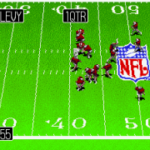Source: https://kong.ee/
Donkey Kong: A Timeless Classic in Video Game History
Donkey Kong is one of the most iconic characters in the history of video games. Since his debut in 1981, this legendary ape has become a cornerstone of the gaming industry, influencing countless games and spawning a franchise that continues to thrive today. In this comprehensive article, we’ll explore the origins, evolution, and lasting impact of Donkey Kong, and why he remains a beloved figure in gaming culture.
The Origins of Donkey Kong
Donkey Kong first appeared in the 1981 arcade game “Donkey Kong,” developed by Nintendo and designed by the legendary Shigeru Miyamoto. This game marked Nintendo’s breakthrough into the North American video game market and introduced players to a new kind of platforming experience.
In the original game, players control Jumpman (who would later be known as Mario) as he attempts to rescue his girlfriend Pauline from the clutches of Donkey Kong, a giant gorilla. The game’s innovative gameplay and character design were groundbreaking at the time, setting new standards for the industry.
Gameplay Mechanics
The original Donkey Kong arcade game featured several key gameplay elements:
- Platforming Action: Navigate through levels filled with obstacles, ladders, and platforms.
- Avoiding Hazards: Dodge barrels and other objects thrown by Donkey Kong.
- Strategic Movement: Timing and precision are essential to progress.
- Increasing Difficulty: Each level becomes more challenging, testing players’ skills.
These mechanics laid the foundation for future platforming games and established Donkey Kong as a challenging and engaging title.
Evolution of the Donkey Kong Series
Following the success of the original arcade game, Donkey Kong evolved into a franchise with numerous sequels and spin-offs across various gaming platforms.
Donkey Kong Jr. (1982)
In this sequel, players control Donkey Kong’s son, Donkey Kong Jr., who aims to rescue his father from Mario, reversing the roles from the original game.
Donkey Kong Country Series (1994 – Present)
The Donkey Kong Country series, developed by Rare for the Super Nintendo Entertainment System (SNES), revitalized the franchise with advanced graphics and new gameplay mechanics:
- Pre-rendered 3D Graphics: Innovative visuals that were ahead of their time.
- New Characters: Introduction of Diddy Kong, Dixie Kong, and other members of the Kong family.
- Expansive Worlds: Diverse levels with hidden secrets and collectibles.
- Engaging Soundtracks: Memorable music composed by David Wise.
Modern Titles
The series continued with titles like:
- Donkey Kong 64 (1999)
- Donkey Kong Jungle Beat (2004)
- Donkey Kong Country Returns (2010)
- Donkey Kong Country: Tropical Freeze (2014)
These games expanded on the original concepts, bringing Donkey Kong to new generations of players.
Impact on the Gaming Industry
Donkey Kong’s influence on the gaming industry is significant:
- Introduction of Mario: The character Jumpman evolved into Mario, becoming Nintendo’s flagship character.
- Advancements in Game Design: Pioneered platforming mechanics and level design that inspired future games.
- Cultural Icon: Donkey Kong became a household name, contributing to the mainstream popularity of video games.
The franchise also demonstrated the potential for storytelling and character development within games, paving the way for more complex narratives in the medium.
Cultural Significance
Donkey Kong’s reach extends beyond video games:
- Merchandise: Featured in toys, clothing, and other merchandise.
- Appearances in Other Media: Cameos in movies, TV shows, and other video games, such as the Super Smash Bros. series.
- Competitive Gaming: The original arcade game remains popular in competitive gaming circles, with players aiming to achieve high scores.
Donkey Kong’s legacy is a testament to his enduring appeal and impact on popular culture.
Tips for Playing Donkey Kong Games
For those looking to dive into Donkey Kong games, here are some tips:
- Study Enemy Patterns: Understanding the movement and behavior of enemies can help navigate levels more effectively.
- Explore Thoroughly: Many games in the series feature hidden areas and collectibles.
- Master the Controls: Familiarize yourself with game mechanics to improve performance.
- Practice Timing: Precise timing is crucial for overcoming obstacles and defeating bosses.
Conclusion
Donkey Kong remains a timeless classic that has significantly shaped the video game industry. From his origins as an arcade antagonist to his role as a beloved protagonist, Donkey Kong’s journey reflects the evolution of gaming itself. Whether you’re a longtime fan or new to the series, Donkey Kong offers a rich and enjoyable gaming experience that stands the test of time.































